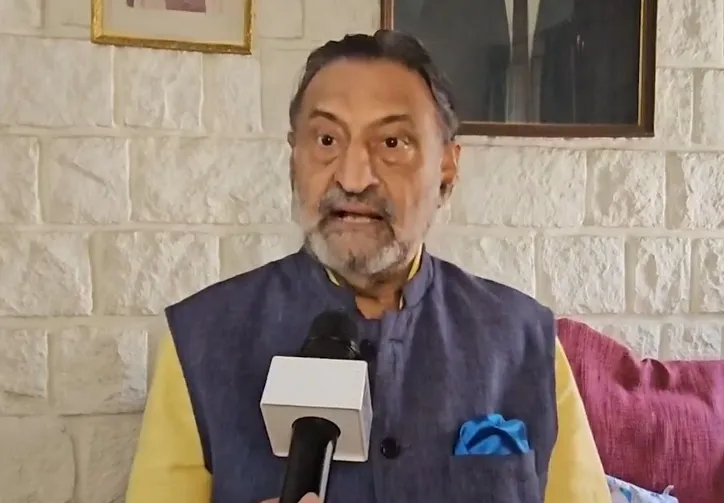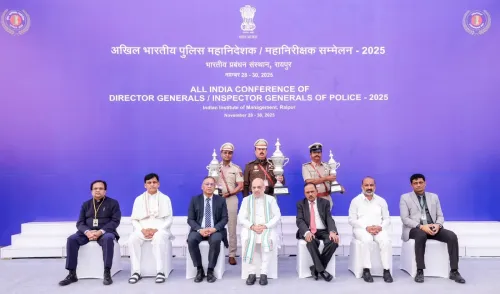Did Pakistan Test Our Air Defense? Experts Weigh In on India's Strong Response to Cross-Border Aggression

Synopsis
Key Takeaways
- India demonstrated high effectiveness in intercepting drones.
- Pakistan's drone strategy mixes low-cost and sophisticated models.
- All attacking drones were neutralized during recent assaults.
- Drone operations may be conducted under civilian air traffic cover.
- India's strikes on Pakistan were precise and limited to military targets.
New Delhi, May 10 (NationPress) Following a surge in cross-border clashes, esteemed Indian Defence analysts have highlighted Pakistan's increasingly bold drone warfare strategies, detailing the magnitude of recent assaults and India's robust countermeasures.
Retired Navy officer and defence expert Commodore G.J. Singh remarked, “In discussing one angle, after the escalation, we gradually began to enhance our defenses. Initially, Pakistan deployed numerous low-cost drones, but they also integrated sophisticated models. It appears that Pakistan aimed to assess our air defense capabilities regarding drone interception.”
“They tested this across various borders, including Punjab and Rajouri, and we demonstrated exceptional effectiveness. All drones were neutralized. However, we recognized that the low-cost drones could be managed not with missile systems, but with more economical alternatives,” he added.
Retired Group Captain D.K. Pandey echoed these sentiments, revealing the scale of the latest offensive.
“Reports indicate that Pakistan executed a drone offensive on 26 locations within India, primarily targeting military bases, airfields, and even some civilian areas, resulting in damage and casualties. Nevertheless, every drone was successfully neutralized. One drone crashed and ignited, causing some destruction. Following this, India assessed the situation and discovered that Pakistan is conducting drone operations under the guise of civilian air traffic. This implies that Pakistan is utilizing international air routes for drone strikes, raising concerns that any Indian retaliation targeting these flights could escalate into an international incident,” he stated.
During a high-level briefing led by Foreign Secretary Vikram Misri, alongside Colonel Sofiya Qureshi and Wing Commander Vyomika Singh, it was disclosed that Indian forces targeted at least eight strategic military sites within Pakistan on Friday night.
The strikes reportedly hit six military installations, one radar facility, and one aviation base, inflicting considerable damage. The operation was executed with minimal collateral impact, showcasing India's advancing strategic and technological superiority in aerial and unmanned operations.
The government reaffirmed that the strikes were calculated, precise, and exclusively aimed at military targets, emphasizing India's commitment to maintaining regional stability while safeguarding its sovereignty.









